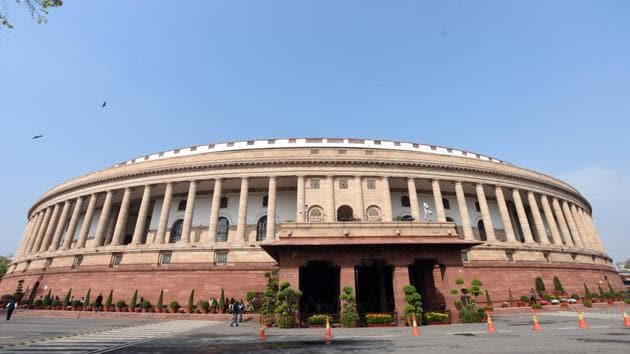Don’t curtail free speech in Parliament
The rule of sub-judice is a needless restriction on the freedom of speech in the House. The restrictions on the committees are not sanctioned either by the Constitution or by the rules of the House.
The issue of parliamentary committees considering matters which are sub-judice has assumed importance in the context of the Lok Sabha speaker and the Rajya Sabha chairman issuing directions to the chairpersons of the parliamentary committees, asking them not to take up such matters. The rule of sub-judice as a legal term can be found in section 10 of the Civil Procedure Code, the gist of which is that if a suit is pending in a court, another suit which is directly and substantially the same cannot be tried by the same court or another court.

This principle has been adopted by Parliament and the rules relating to motions, resolutions, petitions, questions contain the same. Under this, a matter which is under the consideration of a court of law should not be taken up as a subject matter of a motion, resolution, petition or questions. Thus, it can be seen that the rule of sub-judice imposes restrictions on the right of Members of Parliament to raise matters in the House.
Legislatures in our country have the absolute privilege to discuss any matter of public importance. The Constitution provides for freedom of speech in the legislature. But legislatures have imposed on themselves the sub-judice restriction in consideration of the fact that deliberations in a House on a matter which is before the court might influence the latter. However, this restriction has stirred a debate because it has the effect of preventing the Houses from discussing important public issues merely because the matter is before a court of law. GV Mavalankar, the first speaker of the Lok Sabha, laid down the right approach to be adopted on this issue, “The chair has to ensure that no discussion in the House should prejudice the courts of justice, the chair has also to see that the House is not debarred from discussing an urgent matter of public importance”.
A committee of presiding officers under the chairmanship of VS Page, the then chairman of the Maharashtra Legislative Council, had suggested in 1968 that freedom of speech is a primary right, whereas the rule of sub-judice is a self-imposed restriction. So, where need be, the latter must give way to the former.
This approach was followed by the presiding officers of Parliament. Parliament, for example, discussed many scams in the past although those issues were before the court. Committees were appointed to investigate those scams. In this context, it is noteworthy that rule 388 of the House rules provides for the suspension of any rule to enable the House to discuss a matter. Thus, the rule of sub-judice can also be suspended in an appropriate context; it is neither absolute nor immutable.
In the context of the direction issued by the presiding officers of Parliament, it must be said that no rule relating to committees mentions sub-judice or imposes restrictions on this ground on the subjects selected by the committees. In fact, the rule of sub-judice in the House has lost much of its relevance over a period of time. Initially, the Houses of Parliament might have thought that a discussion on the floor of the House might influence the courts, and thus it might interfere with the dispensation of justice. But there is no empirical evidence that the courts were influenced by a debate in the House or by an investigation by a committee of the House. Further, the courts examine strictly the legal aspects of a matter brought before them and determine the culpability of a person on the basis of clear evidence. They do not examine the political, economic and other dimensions of the issue. A committee of Parliament, on the other hand, looks at all other dimensions comprehensively and submits a report to the House. The committees are recommendatory bodies which make recommendations and not issue decrees.
Therefore, the sub-judice rule cannot be interpreted to imply that the Houses of Parliament or their committees cannot debate or investigate any matter which is before the court. The scope of examination, the conclusions arrived at by the committees, the status of recommendations all clearly indicate that the committees operate in a different field. The courts decide legal issues. The committees do not deal with legal matters alone. The courts do not decide issues on the basis of debates in Parliament or investigation by a committee. In fact, even in the case of courts, one Bench is often not influenced by another Bench of the same court. The recent judgment of a five-judge Bench of the Supreme Court on the subclassification within the Scheduled Castes and Scheduled Tribes is a case in point. A five-judge Bench held earlier that subclassification is against the Constitution. The new five-judge Bench held that it is constitutionally valid. The fear that a debate in Parliament or an investigation by a committee will influence the judges is imaginary.
The Speaker’s direction is binding on the chairmen. Therefore, they can’t take up a matter which is sub-judice. Nevertheless, it must be noted that no rule in the rules of procedure of the House prohibits a committee from examining a matter on the ground that it is before the court.
The rule of sub-judice is a needless restriction on the freedom of speech in the House. The restrictions on the committees are not sanctioned either by the Constitution or by the rules of the House.



